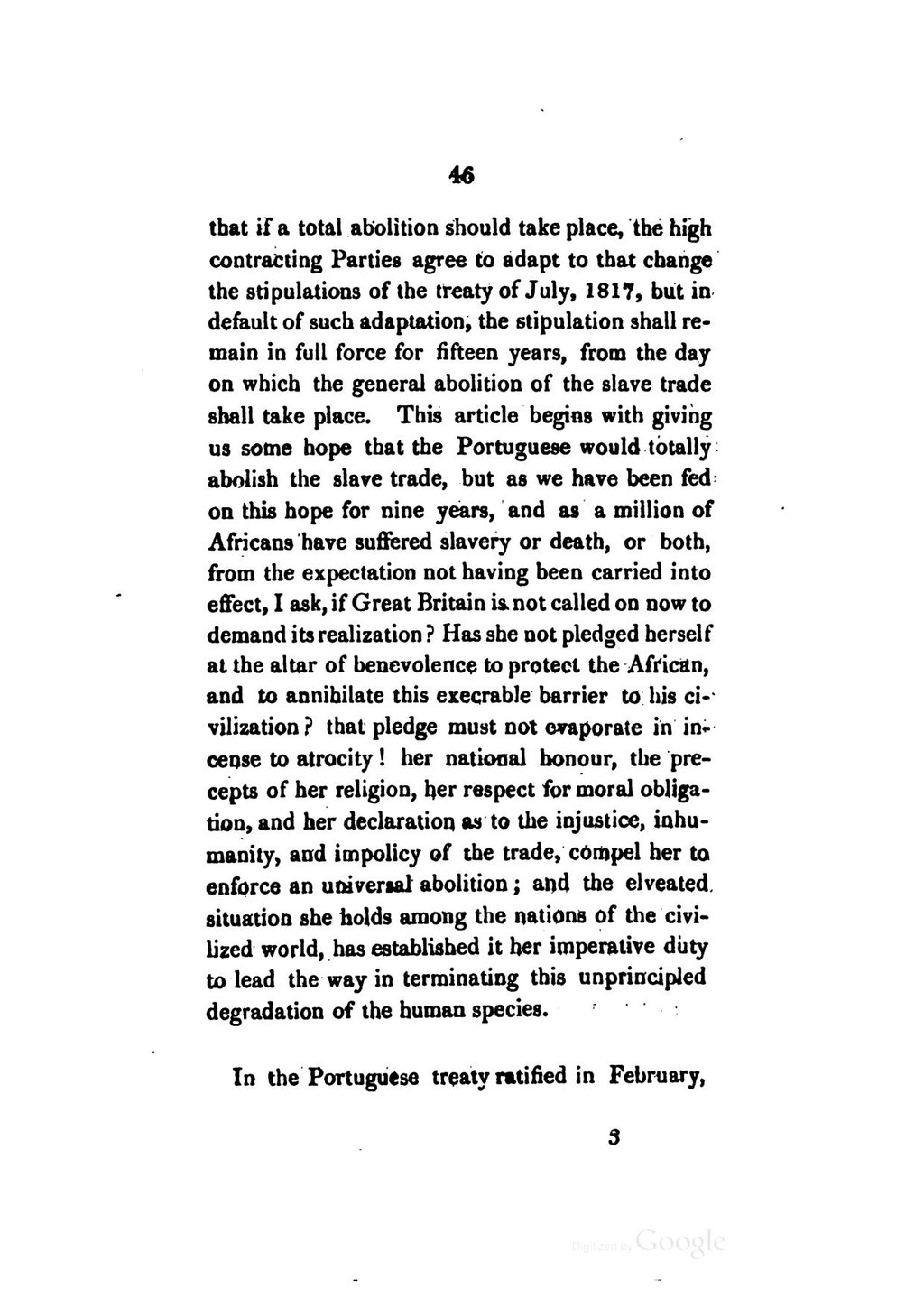46
that if a total abolition should take place, 'the high contracting Parties agree to adapt to that change the stipulations of the treaty of July, 1817, but in default of such adaptation, the stipulation shall remain in full force for fifteen years, from the day on which the general abolition of the slave trade shall take place. This article begins with giving us some hope that the Portuguese would totally abolish the slave trade, but as we have been fed on this hope for nine years, and as a million of Africans have suffered slavery or death, or both, from the expectation not having been carried into effect, I ask, if Great Britain is not called on now to demand its realization? Has she not pledged herself at the altar of benevolence to protect the African, and to annihilate this execrable barrier to his civilization? that pledge must not evaporate in inceanse to atrocity! her national honour, the precepts of her religion, her respect for moral obligation, and heir declaration as to the injustice, inhumanity, and impolicy of the trade, compel her to enforce an universal abolition; and the elveated situation she holds among the nations of the civilized' world, has established it her imperative duty to lead the way in terminating this unprincipled degradation of the human species.
In the Portuguese treaty ratified in February,
3
